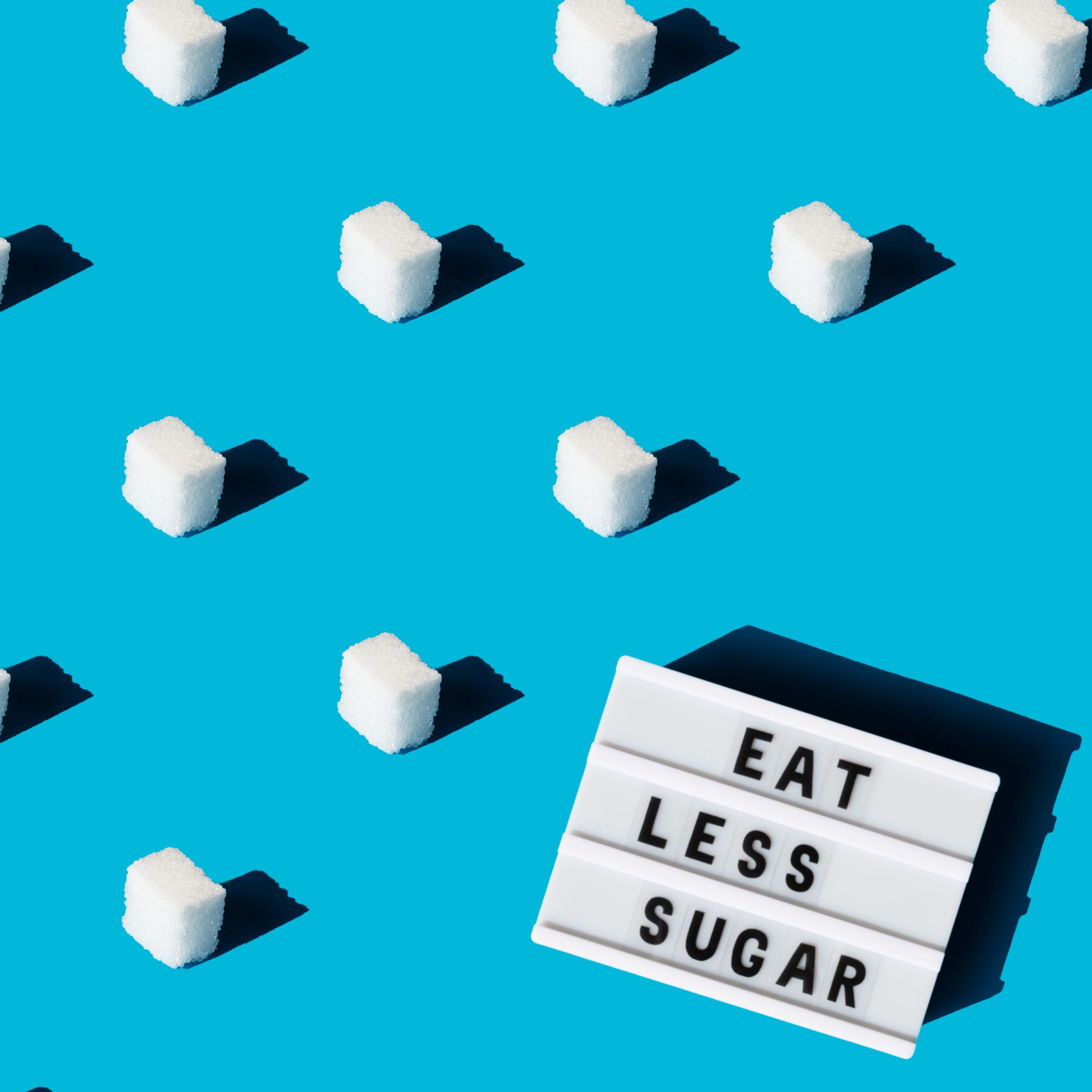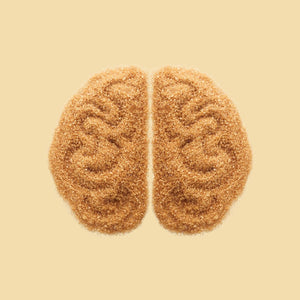But what if we focus on the immediate and undeniable rewards of reducing sugar intake? Let's explore some of the benefits you can experience by making this change today:
1. More Radiant, Youthful Skin:
When we consume simple carbohydrates and sugars, our bodies convert them into glucose, leading to an increase in insulin levels. Elevated insulin levels trigger inflammation throughout our body, resulting in the production of enzymes that break down the elastin and collagen in our skin through a process known as glycation. The outcome? Skin that lacks elasticity, appears dull, puffy, saggy, and prematurely aged. If you already experience skin conditions like acne or rosacea, the inflammation caused by sugar can exacerbate these issues.
However, by simply reducing your sugar intake, you may notice a remarkable transformation in your skin. It can become perkier, fresher, more vibrant, and less prone to inflammation. Even more exciting, maintaining a consistent low-sugar lifestyle can yield long-term benefits, including radiant skin and a reduction in visible signs of aging.
2. Better Sleep:
The amount of sugar we consume has a significant impact on our blood sugar levels, insulin levels, and the production of stress hormones, all of which can influence the quality of our sleep.
Research has shown that a diet high in sugar tends to result in lighter and less restorative sleep, characterized by more frequent awakenings and interruptions throughout the night. This restless sleep can leave you feeling chronically fatigued and more prone to craving sugar the following day, creating a vicious cycle.
However, by simply reducing your sugar intake, you can experience a noticeable shift toward better quality sleep and more regular sleeping patterns. Imagine waking up feeling truly well-rested and refreshed, ready to take on the day without the burden of sleep deprivation.
By breaking free from the grip of excessive sugar consumption, you can enjoy the benefits of a sound night's sleep, paving the way for improved energy, mood, and overall well-being. Don't underestimate the power of cutting back on sugar for a truly rejuvenating slumber.
3. Stable Energy Levels:
Upon consuming sugar, our blood sugar levels experience a rapid increase, providing us with a sudden surge of energy. However, this elevation is short-lived as insulin is released by our cells, causing a subsequent drop in blood sugar levels. This abrupt decrease can lead to feelings of shakiness, weakness, and hunger, creating a cycle of fluctuating energy levels characterised by repetitive spikes and crashes.
Reducing sugar in our diets stabilises our energy levels throughout the day, providing a brighter and more consistent sense of vitality. Increased energy promotes positive moods, a clearer mind, and enhanced productivity.
Tip: Start your day with a non-sugary breakfast that focuses on healthy protein and fats! A good example could be eggs with avocado, smoked salmon and spinach.
4. Improved Digestion and Reduced Bloating:
Excessive sugar, particularly fructose, causes inflammation in the gut lining and fuels the growth of problematic bacteria and yeast. This can result in excess gas production, causing bloating, abdominal pain, and digestive discomfort. When the population of harmful bacteria surpasses that of beneficial bacteria in our gut (a condition known as 'gut dysbiosis'), it disrupts the balance and harmony of our gut microbiome. This altered state hinders our body's ability to effectively digest food and can result in intestinal inflammation, along with various other health issues such as compromised immunity and mood disorders.
If you experience excessive bloating or abdominal discomfort, try cutting back on sugar in your diet and you may feel an improvement.
5. Better Weight Management:
While weight loss shouldn't be the sole focus of your health goals, it's worth noting that reducing or eliminating sugar from your diet can actually aid in weight management, sometimes with remarkable ease. This is due to the impact sugar has on your food choices, appetite, cravings, and insulin sensitivity.
A diet high in sugar often leads to heightened production of insulin, leptin, and stress hormones like cortisol in the body. Over time, your body can develop resistance to these hormones as they are constantly triggered and released by the sugar in your diet. As a result, you may experience an unsatisfied appetite, excessive calorie intake, and difficulties in achieving or maintaining weight loss goals.
By significantly reducing sugar intake, you ensure that your insulin and leptin levels are not excessively spiked or altered. Consequently, this leads to reduced cravings, more manageable hunger cues, and a more efficient metabolism. By taking this step, you can establish a healthier relationship with food and experience greater control over your weight and overall well-being.
It's important to exercise caution when substituting "refined sugar" (such as table sugar, caster sugar, and glucose syrup) with "unrefined sugars" like coconut sugar, agave syrup, honey, maple syrup, or rice malt. Although these alternatives may be slightly less refined and contain some traces of minerals and nutrients, their overall impact on your body is often quite similar to consuming regular "added" sugar.
Remember: sugar is sugar. Fancy or exotic names for disguised sugars can mislead you and potentially impede your progress toward achieving your long-term health goals.
As you can see, the immediate benefits of reducing sugar intake are substantial. After just a week or so of implementing these changes, you're likely to experience such positive effects that you won't have the desire to return to a higher sugar diet. Embrace these positive changes and the rewards they bring to your lifestyle and well-being.

References:
Leith-Manos, R. (2013, May 16). Is Sugar Ageing You? Sydney Morning Herald. Retrieved from: https://www.smh.com.au/lifestyle/beauty/is-sugar-ageing-you-20130513-2jib2.html
Katta, R., & Desai, S. P. (2014). Diet and Dermatology: The Role of Dietary Intervention in Skin Disease.The Journal of Clinical and Aesthetic Dermatology, 7(7), 46–51
St-Onge, M.-P., Mikic, A., & Pietrolungo, C. E. (2016). Effects of Diet on Sleep Quality.Advances in Nutrition, 7(5), 938–949
Brown, K., DeCoffe, D., Molcan, E., & Gibson, D. L. (2012). Diet-Induced Dysbiosis of the Intestinal Microbiota and the Effects on Immunity and Disease.Nutrients, 4(8), 1095–1119
Macdonald, I. A. (2016). A review of recent evidence relating to sugars, insulin resistance and diabetes.European Journal of Nutrition, 55(Suppl 2), 17–23. http://doi.org/10.1007/s00394-016-1340-8




